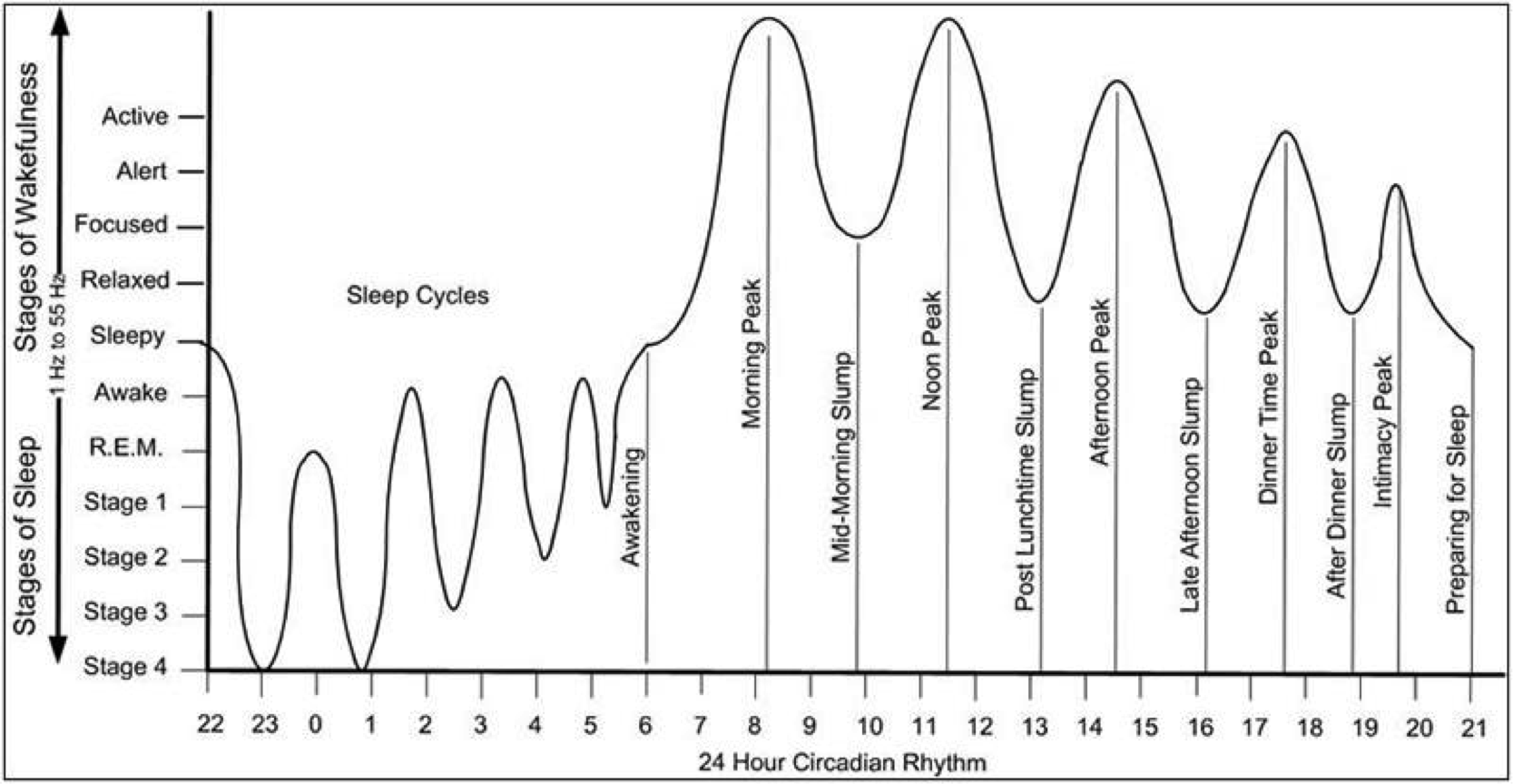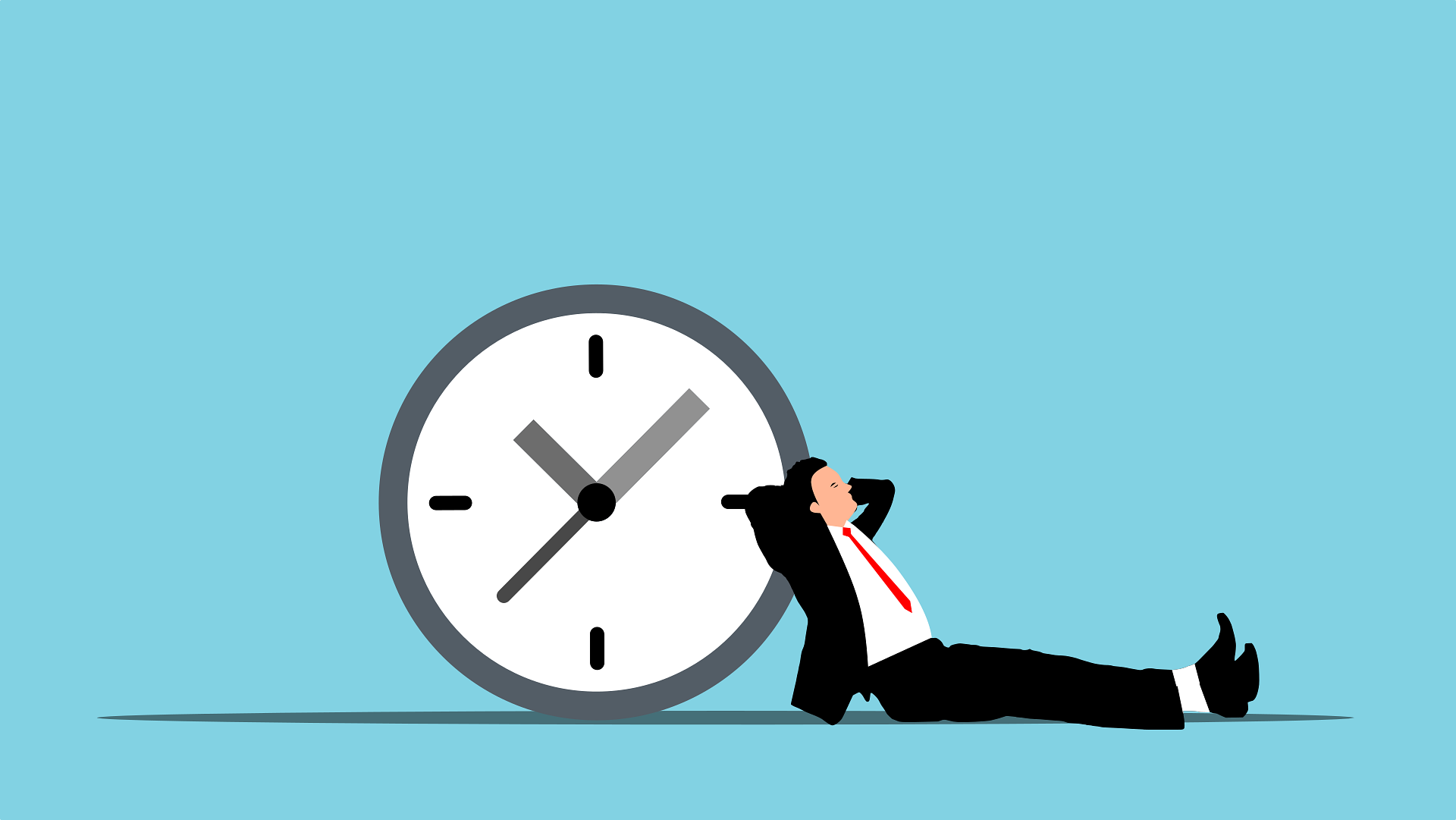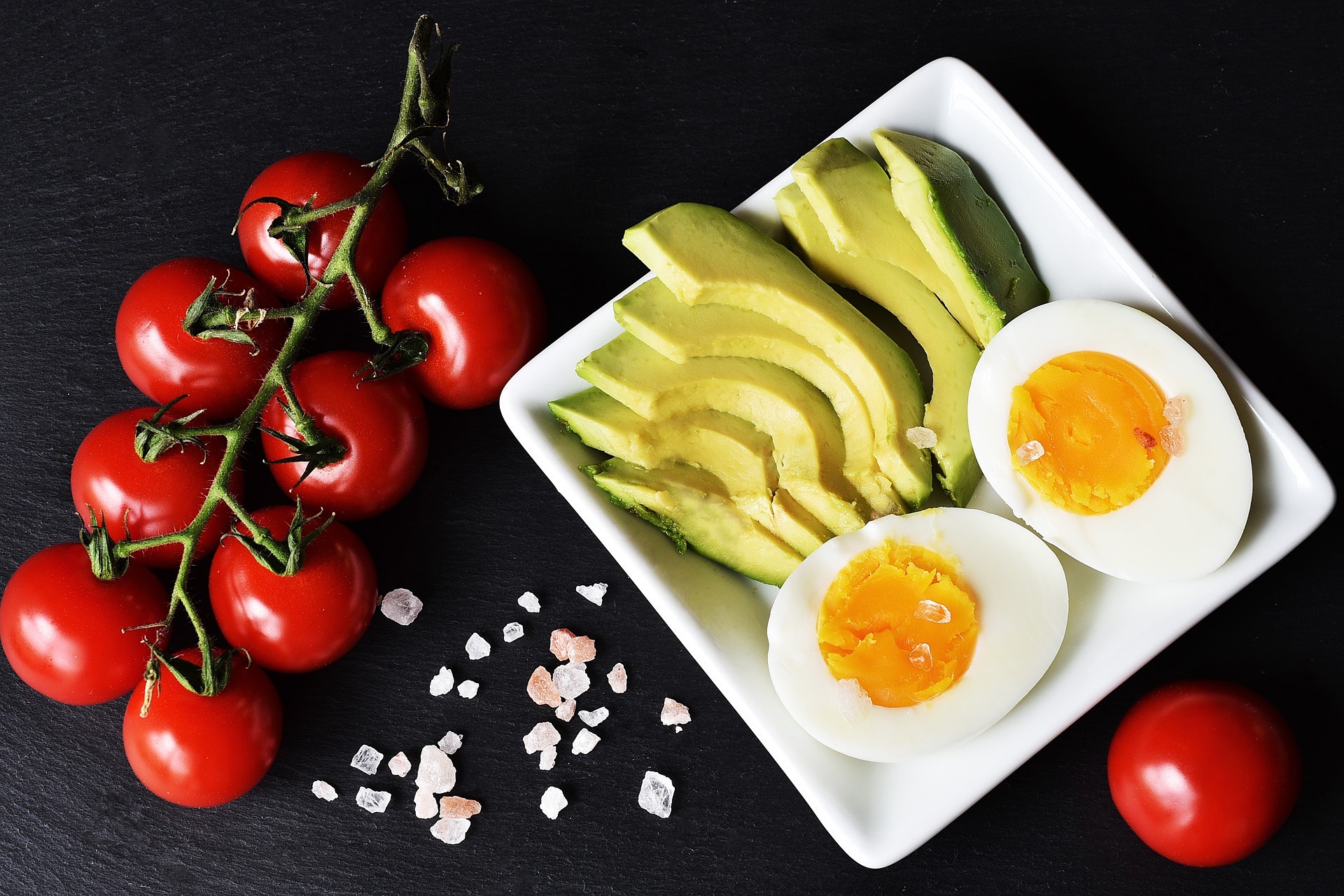3-Bullet Summary
You’ll benefit more from reading the article the whole way through. But, if you’re pressed for time, here’s a condensed version of The Perfect Evening Routine for Students:
- Hardly any students realise how an evening routine can even benefit them, let alone how to optimise one.
- Simply put, a morning routine serves to prepare you for tomorrow. Because we produce our best work when we’re freshest, we should be leveraging our evening routines to set ourselves up for success tomorrow.
- With the purpose of the evening routine for students clearly defined, it becomes clear how the following 5 simple steps are crucial to a productive evening routine:
Netflix, Doom Scrolling and Doritos
You find yourself surrounded by chaos, drowning in a sea of textbooks, assignments, and crumpled-up notes.
The clock on your wall blinks 2:00am, its mocking glow a constant reminder of your struggle to be organised.
The past few weeks have been a relentless sprint from one deadline to the next, and exhaustion has become your unwelcome companion. Late nights have become your norm, but they’re starting to take their toll. Your eyelids droop, your head aches, and you crave Netflix, doom scrolling and Doritos.
You can’t help but wonder if there’s a better way. You long for a peaceful evening, a magical routine that would let you balance studying, health, and maybe even a bit of relaxation.
But, every time you search for a solution online, you’re left wanting more.
Nobody’s given you the blueprint that will transform your evenings from something draining and unproductive into something that supports your grades, health and performance.
Introduction
If there’s one thing students do worse than the morning, it’s the evening.
The evening should be dedicated to preparing us for the next day mentally and physically. However, so many students actually sabotage their morning the next day by…
- Doom scrolling on social media late into the night
- Playing stimulating video games
- Snacking and drinking late (as this impacts their sleep)
- Partying (mainly applies to university/college students)
- Cram revising (especially during exam season)
The list goes on.
Although my morning routine used to be as tragic as the average student’s, my evening routine has always been pretty damn tidy.
Back in my sixth form days, for example, I’d consistently (remember that word), eat dinner with my family (which I still do), take a shower or warm bath, study for a couple of hours, and read a book before bed.
Simple, clean and effective. It got me three A*’s and supported good health and performance. (Great job, 17-year-old Sam!)
Over the years, though, my life has gotten more complicated. As a result, I’ve had to adjust several aspects of my evening routine — except from a core few.
These are my non-negotiables, and there’s scientific data to support why they’re so essential.
My goal today is to walk you through these core few and show you the perfect evening routine for students. We’re going to identify the only habits that genuinely matter for your success as a student, and cut through all the BS that other sources online will tell you to do (which are usually time consuming and pointless).
Before we get to the essential habits, however, I think there’s one crucial thing we should address first. If we don’t address this, then we won’t understand why we should even bother with an evening routine, and, as a result, we won’t have any motivation to get started.
The Purpose of the Evening Routine
In The Perfect Morning Routine for Students, we learned that the core purpose of the morning routine was to provide the right signals. The right signals lead to the right hormones being released, and, subsequently, the right feelings and emotions (alertness, energy, sharpness, etc.).
Don’t get me wrong, the evening routine is also a signals game. You want to provide your body the signal to feel tired before going to bed, for example. But, I (me, my opinion) actually believe that the evening routine serves another core function…
To prepare you for the next day.
Let me explain.
See, as the day goes on, our work quality progressively suffers. This is because of a basic biological mechanism called the circadian rhythm.

Credit: NuTesla (2016) Circadian rhythms, the true rhythm of life. Available at: http://circadian.nutesla.com/ (Accessed: 20 September 2023).
If you’ve read The Ultimate Guide on How to Sleep Better (highly recommended), then you’ll be familiar with this term. In short, it refers to the 24-hour timer within your bodies, which makes us feel awake at certain times and sleepy at others.
Now, if you look at the image above, you’ll notice that as the day goes on, our energy levels (i.e., wakefulness) decrease. This is because of the build-up of two chemicals that make us feel tired: adenosine1 and melatonin2.
You can try all you want to fight them, but they will win. You cannot stop the feeling of tiredness as the day goes on.
For this very reason, the ideal evening routine for students shouldn’t have us doing stimulating or mentally taxing things. It makes perfect sense. We’re inevitably going to feel more tired as the day goes on, and, as a result, we won’t be able to attack our work with the same focus.
Simply put, the first thing you put your mind to during the day will be your best work. You’ll feel the most awake and have the most energy. Assuming that you go to bed in the evening, then that means the morning/early afternoon will be your most productive time. The evening may still be productive, especially if you’ve done nothing too mentally or physically taxing all day, but it simply won’t be as productive as when you’re fresh (which is the morning, for most people).
Therefore, we should use our evening routine to prepare us for productivity the next day;
"If the first things we set our minds to are done the best, then the last should set us up to do them again tomorrow."
» Strong Students Tweet
The Perfect Evening Routine for Students
So, we now understand why we should have an evening routine in the first place: to set us up for the next day, when we’ll be more productive. Great.
This is super important because we can now make better choices about the habits we should practice in the evening.
You may recall from the start of the article that I talked about a core handful of habits that have never left my evening routine. These are the habits we are now going to cover. They all tie in with the main purpose of the evening routine for students, and will level up your productivity if you stick with them.
They’re written in chronological order, meaning you should do the first one first, second one second, etc.
Feel free to add more, but, for consistency purposes, less is better. Trust me.
So, let’s get to it! Here are the 5 core steps to the perfect evening routine for students!
Step 1) Eat a Healthy Dinner, Ideally with Others, 2–3 Hours Before Bed
The evening starts at around 5pm. Most people eat dinner between 5pm and 7pm. Therefore, most people’s evenings start with dinner.
Now, there are a few things to bear in mind for dinner time, if you want it to be productive.
First, is the composition of the meal. The evening meal should…
- Contain a balanced amount of each macronutrient (protein, fat and carbohydrate)
- Be dense in micronutrients (vitamins and minerals)
- Not be too calorie dense or ‘heavy’, as this can impact digestion and sleep quality
Basically, this means eating a meal centred around whole and minimally processed foods (which you can learn about here, and get the best examples of here). The reason we want our last meal to be healthy and satisfying is because it will fuel performance the next morning and not cause us to feel hungry during the night.
The second key aspect of the evening meal is the social aspect. Eating with others has been scientifically proven to promote better eating habits3 and better mental health4. Just being around people, talking and laughing activates your parasympathetic (rest and digest) nervous system, which also promotes better digestion.
Because loneliness is a hidden epidemic amongst students, Eating with others can quite literally be lifesaving. Whether it’s your family or friends, make a conscious attempt to not eat alone. You’ll notice the benefits, believe me.
The final way to make dinner time maximally productive is to do it 2–3 hours before bed. The reason we do this is simple: to promote good sleep. Studies have proven that heavy meals close to bed time (i.e., those eaten an hour or less before bed) can cause digestive issues and, therefore, the time it takes to get to sleep5.
A light snack won’t hurt, but anything high in carbs and fat will really hurt your sleep. So, it’s best practice to have your last meal at a time that doesn’t leave you feeling hungry, but also doesn’t cause bloating or indigestion.
(Optional) Step 2) Deep Work
As a student, chances are that you have classes and/or work to do throughout the day. These classes and/or work blocks probably end somewhere between 3pm and 6pm. Assuming you eat between 5pm and 7pm, this gives you a lot of hours (4, in most cases) before bedtime, which, for most people, is somewhere between 9pm and 11pm.
Now, if you’ve got the energy, I strongly recommend dedicating some time in the evening to deep work. By this, I mean finding 1–2 hours to sit down with no distractions and attack something big, like an assignment or exam revision.
There are two reasons for why I recommend this:
- If there’s anything you didn’t finish during the day, you can get it done in the evening. This means that it won’t play on your mind and disturb your sleep.
- You outwork the competition and get way more work done.
This has been my unfair advantage for years. Because I learned that the best students dedicate 2 hours at home studying for every hour they spend studying a subject in class6, I started putting in extra hours in the evening — the ones I would’ve otherwise spent on video games or social media. Lo and behold, I’ve always done really well in education (shocker).
At the end of the day, what you put in is what you get out. The more quality, focused hours of work you can do, the better your grades will be. Therefore, if you can exploit your evenings to accumulate more hours, you’ll do better than those who don’t.
However, I appreciate that working in the evenings for some is unfeasible. Some students work so hard in the morning and throughout the day and/or get home late, meaning that the thought of more studying can hurt their mental health. That’s why this step is optional.
If you can find the time and energy, do it; you’ll start making ridiculous progress. If you can’t, don’t sweat it and recover so you can work hard the next day. Just bear in mind, though, that even 1 hour of deep work per evening, in the long term, is enough to boost your grade by a level or two.
Step 3) Prepare for Tomorrow
Once you’ve finished your last bit of (optional) deep work, there’s one more thing to do before settling down for the evening: set yourself up for tomorrow morning.
Before you skip this step, here me out.
How many times have you told yourself that you’ll do something tomorrow, only to skip it? If you’re like most people, then probably a few times.
Although there are many reasons for skipping tasks, one of the biggest reasons is disorganisation. For example, you say to yourself you’ll study that textbook chapter tomorrow, but because you left the book in a different room, forgot the page number and don’t know what information you’re looking for within the chapter, you end up procrastinating.
The more disorganised you are, the more energy you have to expend getting into an organised state that promotes effective work.
A good way to think of this is via a concept I call brain charge.
Your brain is like a battery with limited charge. As the day goes on and you make more decisions, the charge decreases. The more stressful/demanding a task is, the more charge it sucks up.
Because focused mental tasks like deep work are the most stressful/demanding, you want to perform them with as much charge as possible. So, before going into them, you want to make as few decisions as possible in order to preserve energy.
This is why I’m so big on getting mini tasks out the way before tomorrow morning.
Although the things you need to prepare for will be personal to your needs, and, as a result, the mini tasks too, there are some super simple actions that almost any student can perform in the evening to promote effective work tomorrow:
- Write a simple to-do list of 1–3 big tasks you want to complete tomorrow — Make sure to be as specific as possible so you need to do less thinking. E.g., ‘I will take active notes on chapter 6, section 2 tomorrow’ > ‘I will study tomorrow’.
- Lay out your clothes — University/College students in particular tend to spend ages deciding what to wear in the morning. Fix this issue by just laying your clothes out the night before.
- Make things you procrastinate as visible as possible — Place the textbook on the exact page you need to study on your desk. Have the specific flashcards you need to revise laid out. Put your gym gear right next to your bed.
- If you’re leaving first thing, pack your bag — Put all the relevant gear, books and tech in your bag the night before so you’re ready to hustle tomorrow morning.
As you can see, all these tasks take no time to complete. You’re surrendering 15–30 minutes when you’re tired so you don’t have to waste precious brain charge in the morning. A huge ROI, if you ask me.
Step 4) Take a Warm Shower or Bath
Once you’ve eaten, (optionally) finished your last block of deep work, and prepared for tomorrow, it’s time to spend the rest of the evening unwinding properly. And, one of the most important parts of a successful wind-down is to cool down.
The reason we do this is because in order to sleep, we must drop our core body temperatures to slightly above 36°C (97°F)7.
One would think that taking a cold shower would therefore be beneficial. But, this would actually promote vasoconstriction (i.e., the tightening of blood vessels) and encourage our bodies to warm up.
As a result, we want to do the opposite: promote vasodilation (i.e., the expansion of the blood vessels). When vasodilation occurs, heat is diverted away from the core to the surface (skin) and outer extremities, particularly the palms of the hands and soles of the feet. During this process, a ‘heat dump’ occurs as excess warmth is transmitted from our bodies to the environment. In turn, because vasodilation promotes internal cooling, research has demonstrated a connection between it and good sleep8, as in order to sleep, we must cool down!
Want to know the best way to increase vasodilation?
A simple warm shower or bath.
Research has quite literally shown that sleep quality is significantly improved by a warm shower or bath 1–2 hours before bed and can lead to sleep latency (i.e., the time it takes to get to sleep) falling by up to 10 minutes9.
So, if you want to really get into relaxation mode and prime your body for sleep, get warm so that your body starts to cool itself down.
Step 5) Shut Off the Lights 1–2 Hours Before Bed
At this stage, we’ve got an hour or two before bed. This is the perfect time to really double down on the sleepiness signals.
We’ve already taken a warm shower or bath. That’s one signal. The next one we’re going to provide is arguably even stronger, however…
Darkness.
See, when it’s dark, a hormone called melatonin is produced by our bodies. This hormone, alongside the chemical adenosine, makes us feel tired. Therefore, if we want to induce tiredness before bed (which most people do), then we want to experience as much darkness as possible.
To do this…
- Turn off or dim down the lights in your house.
- Activate your devices’ blue-light filters so that they don’t affect your sleep (the warmer the colours, the better).
- Wear a pair of blue-light blocking glasses (which are <£10).
- Switch to LED lightbulbs that can be changed to warmer colours (also <£10).
This step honestly isn’t that hard. A few simple settings and cheap purchases will get you amazing results. Your sleep quality will improve, you’ll get to sleep faster, and your performance will skyrocket the next day.
And, once the lights are down/off, you can do pretty much whatever you want!
Ideally, you’d read a book, socialise, stretch or journal.
But, you are a human. If you want to watch some TV, binge Netflix for an hour, or scroll through social media until you can barely keep your eyes open, then go for it. Ultimately, the best evening routine for students is the one you can stick to — find a way to relax that you enjoy and do it after you’ve done the other things on this list.

Final Thoughts: The Perfect Evening Routine for Students
If you’re one of the few students who’s even considered the power of the evening routine, then you’ve probably looked for one online. Chances are, you then received some woo-woo checklist that told you to meditate and show gratitude.
Now, I am not against meditation or gratitude. However, I am hungry for progress. And, unfortunately, meditation and gratitude don’t cut the mustard when it comes to securing A grades and first-class degrees.
That’s why, in this article, we covered the 5 core steps to the perfect routine for students that do matter for your grades and performance.
Eating properly, deep work, preparing for tomorrow, cooling down and turning the lights down/off are the absolute non-negotiables of any evening routine. They’re all super simple, and will absolutely revolutionise your grades and overall life — if you apply them consistently. (If you want to do your darn meditation and gratitude journaling, then do so once you’ve gotten the core 5 nailed first!)
Quickly, I’ve got something to say. Because you’re the type of student who wants top grades, I know you’ll love my *free* ebook: The 10 Secrets of Strong Students. Without spoiling too much, you get access to the 10 most powerful grade-boosting tools out there. Don’t take my word for it, hit the link and download your copy today!
If you’ve already downloaded your copy and you’re hungry for more, then you should definitely check out The Ultimate Guide on How to Sleep Better. You’ll get a checklist of 7 science-based tools you can use to optimise your sleep — tools that are literally perfect companions to the steps in this guide, as they’ll also help to enhance your sleep.
👀👀👀
Otherwise, if it’s the evening where you are now, then you better get cracking!
Stay strong,
Sam.
Founder, Strong Students.







